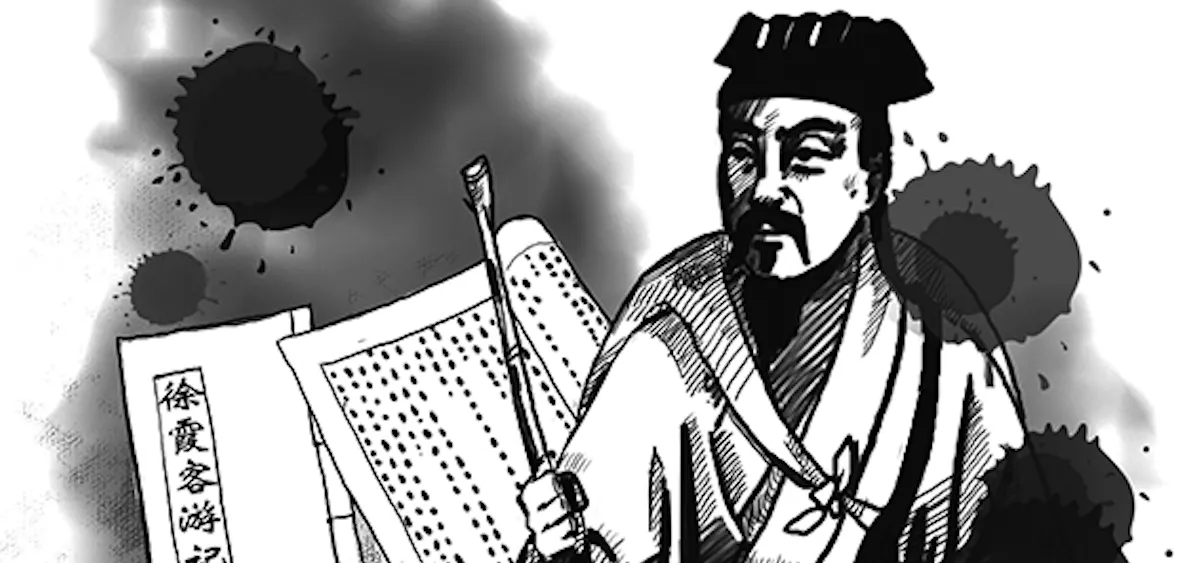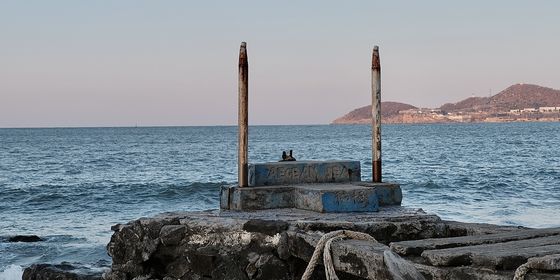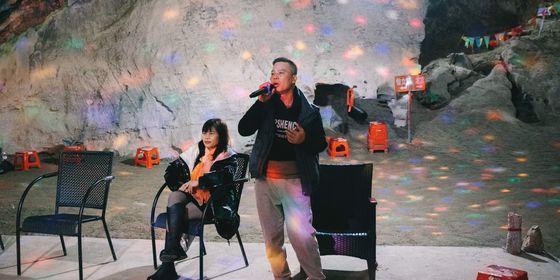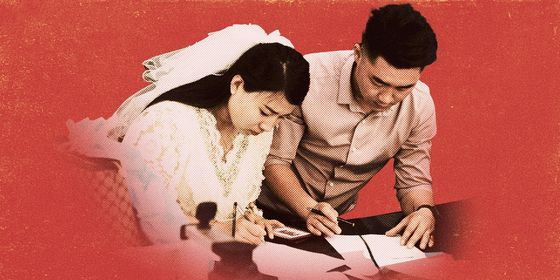Balancing family responsibilities and the urge to wander
While he may have been an angsty young man, prone to bouts of self-doubt and guilt at abandoning his widowed mother, Xu Xiake is worshipped as the father of Chinese backpacking, and several of the routes he traversed some 400 years ago remain in use today.
At the age of 20, newly wed Xu Xiake (1587-1641) had all the trappings of a hopeless romantic. Socially awkward and fond of poetry, his contemporaries said his slightly befuddled expression gave the impression he was easily confused. When his father, a well-to-do merchant, died when Xu was just 18, he was left with the responsibility of handling the farm his father left him and caring for his 60-year-old mother. In a biography of Xu, his friend Qian Qianyi wrote he was “as downcast as a caged bird facing the corner”.
But Xu harbored a secret ambition: to travel. At the time, the idea of a young man deserting his family to enjoy a prolonged period of wandering was considered downright immoral. Children were raised on tales of philosopher Zengzi (曾子) (502 B.C.–432 B.C.), long held up as a paragon of filial virtue who never left his parents for a single day of his life. Moreover, in Xu’s time, virtually no one traveled for travel’s sake. Even after Xu’s death, some Qing Dynasty (1616–1911) scholars described his wanderlust as “grotesque” (畸癖 jī pǐ).
Lucky for Xu, his mother was cut from a different cloth. She made a pact with her son that he could travel when the spring grass sprouted and return when the frost tinged the autumn leaves. “At home you’re like a fenced-in chicken or a harnessed pony. Go travel, and show me paintings of the scenery you see,” he recalled her saying in his travelogue.
With his mother’s blessing secured, Xu set off, servant in tow, with little more than a walking stick and a quilt. According to an epitaph written by a friend, Xu ate whatever he could find and could survive without food for several days. Abiding by the pact with his mother, Xu’s early travels usually lasted less than three months and were limited to the eastern provinces. Even so, such excursions were no mean feat in the 17th century. Xu noted in his travelogue that it took him three weeks to travel from his Zhejiang hometown to the border of Fujian Province, a distance of roughly 800 kilometers.
Xu reveled in exploring mountains and climbing rock faces using only a rope ladder, cloth strips, and the help of his travel companions. He claimed in his notes that “a real man should wake up in clouds at sunrise, and spend the evening on Cangwu (苍梧) [a mountain in today’s Guangxi], instead of applying himself to useless pursuits in his room.” But his travelogue also reveals something of the inner conflict that tormented him.
“A filial son shouldn’t risk his life traipsing up high mountains or through deep valleys. Even Nie Zheng (聂政) the assassin refused to kill people while his mother was alive. What am I doing here, giving my life to cliffs and valleys?”
Xu’s internal struggle didn’t end until his mother passed away in 1625, after which he spent three years at home in mourning in accordance with Confucian requirements. When he was 49 years old, free from all filial obligations and content to leave his wife and two children behind, Xu struck out west with no plan to return. By then he had already covered most of the Ming realm on foot, but had yet to visit Sichuan and Yunnan.
In the ensuing four-year expedition, his travels were so beset with dangers that even his devoted servant abandoned him. To Xu’s great grief, his other travel companion and longtime friend, a monk called Jingwen, was stabbed in a robbery and died. Xu’s health was deteriorating too, and when he finally reached Yunnan, he fell ill. Carried home on a bamboo sedan chair, Xu died six months later at the age of 54.
From his twenties, Xu regularly updated his book: “Travel Notes of Xu Xiake”. By the end of his life he’d penned 640,000 words, of which the notes on his final trip are considered most valuable, especially his explorations of over 300 limestone caves.
However, only a small part of his work survives. His death was closely followed by the Qing invasion of Ming-ruled China, and Xu’s oldest son and his nephew, to whom he had entrusted care of the manuscript, were executed for defending their hometown. A large part Xu’s writings were lost.
While incomplete, the book cemented Xu as a legend among Chinese backpackers. In various travel forums, young Chinese travelers still take pride in having trekked routes he recommended and refer to him as the undisputable “ancestor of Chinese backpackers.”
“Xu Xiake, The Father of Chinese Backpacking” is just one of the many profiles we have in our China Dispatch only “Travel Supplement“. To read the whole piece, download the app on iOS or Android.













